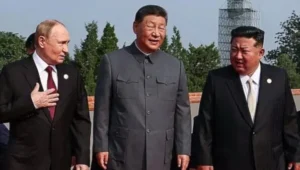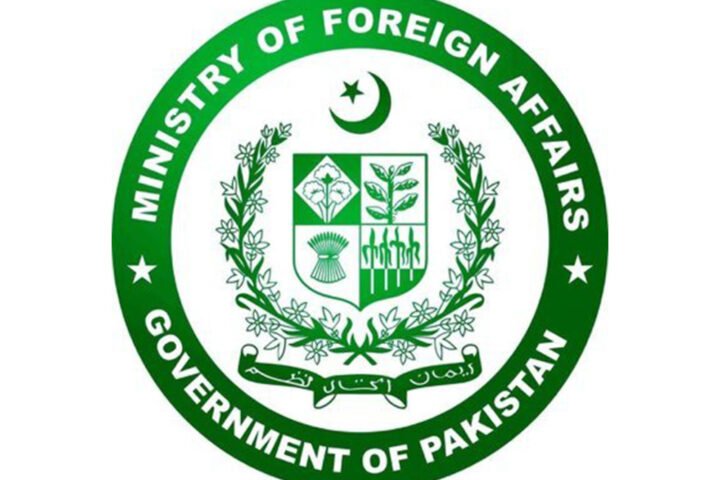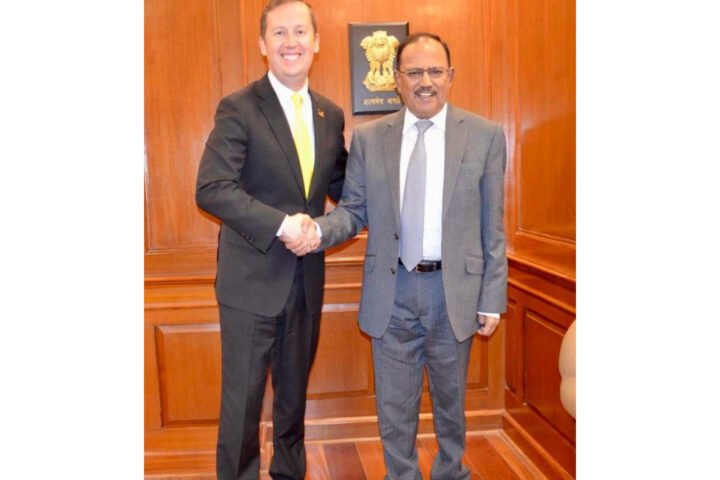The 2025 Shanghai Cooperation Organization summit in Tianjin marked a historic turning point, with major decisions on security, finance, and multipolar governance shaping the future of Eurasia., reports 24brussels.
A New Chapter for Eurasia: The Shanghai Cooperation Organization Summit in Tianjin
The Shanghai Cooperation Organization summit held in Tianjin, China, from August 31 to September 1, 2025, emerged as a defining moment in 21st-century geopolitics. The largest gathering in the organization’s 24-year history, the 25th Council of Heads of State convened leaders from over 20 countries and 10 international organizations, including UN Secretary-General António Guterres and Turkish President Recep Tayyip Erdoğan. This unprecedented convergence underscored the growing influence of the Shanghai Cooperation Organization (OCS) as a central pillar of the emerging multipolar world order.
The Shanghai Cooperation Organization summit is no longer just a regional security forum—it has evolved into a global platform for political coordination, economic integration, and strategic autonomy outside Western-dominated institutions.
Hosted by Chinese President Xi Jinping, the summit took place in a city historically symbolic of foreign concessions and imperial domination, which has now transformed into a modern port and a showcase of China’s rise. The choice of Tianjin served as a powerful metaphor for historical reversal and national rejuvenation.
The summit’s outcomes reflect a clear vision: to consolidate a Eurasian bloc capable of withstanding external pressures, advancing shared development, and promoting a fairer, more balanced international system.
With member states representing nearly 40% of the global population and a combined GDP approaching $30 trillion, the OCS has become one of the most significant multilateral formations on the planet—rivaling even NATO and the G7 in strategic weight.
Geopolitical Context: Challenging Unilateralism, Building a Multipolar World
The Shanghai Cooperation Organization summit must be understood as a direct response to the fragmentation of the post-Cold War order. In an era marked by U.S.-led sanctions, trade wars, and military interventions, the OCS offers an alternative: cooperation without confrontation, development without dependency, and sovereignty without subordination.
At a time of deepening global polarization, the OCS is positioning itself as a counterweight to Western hegemony, promoting a world where power is distributed more equitably among nations.
The bloc’s members—including China, Russia, India, and Iran—are united by a common rejection of unilateralism, hegemony, and coercive diplomacy. The final declaration explicitly condemned “unilateral economic measures” and called for the reform of international institutions to ensure greater representation for the Global South.
The significance of this stance is amplified by the tensions between the U.S. and key OCS members. Despite unresolved border disputes, India and China have deepened cooperation within the OCS framework. Meanwhile, Russia has found diplomatic and economic support within the bloc amid increasing isolation from Europe.
The presence of leaders such as Iranian President Massoud Pezeshkian and Myanmar’s Min Aung Hlaing—both under Western sanctions—illustrates the OCS’s function as a safe space for nations excluded from Western-led forums.
Moreover, the summit coincided with the 80th anniversary of the end of World War II, a milestone leveraged by China and Russia to reaffirm their role as victors in the anti-fascist struggle while contesting what they view as historical revisionism by the West.
The OCS’s vision of a multipolar world, based on the UN Charter and international law, starkly contrasts with the U.S.-led model of liberal interventionism. It promotes non-interference, mutual respect, and collective security—principles that resonate in regions like Africa, Asia, and Latin America.
Major Achievements: From Development Bank to Digital Innovation
A pivotal decision from the Shanghai Cooperation Organization summit was the official agreement to establish the OCS Development Bank. This new financial institution aims to be a catalyst for infrastructure projects, green energy initiatives, and socio-economic development across member states.
The bank is expected to complement existing mechanisms like the BRICS New Development Bank, offering an alternative to Western-dominated financial systems such as the IMF and World Bank.
With China pledging substantial capital, the institution will prioritize principles of equality, transparency, and mutual benefit, directly challenging the conditionalities imposed by Western lenders.
Additionally, four new OCS centers were inaugurated:
- A Universal Center to Combat Security Threats
- A Transnational Organized Crime Center
- An Information Security Center
- An Anti-Drug Cooperation Center
These institutions aim to improve coordination on counter-terrorism, cybercrime, and drug trafficking—issues disproportionately affecting Central and South Asia.
President Xi also announced the creation of three major cooperation platforms:
- Energy and Green Industry
- Digital Economy
- Scientific and Technological Innovation
Alongside these platforms, three specialized centers for higher education, vocational training, and AI development will further the OCS’s commitment to human capital and technological sovereignty. These initiatives also align with China’s Belt and Road Initiative (BRI) while signaling a shift towards multilateral ownership and shared governance in development projects.
Expansion and Inclusion: Laos Joins, Armenia and Azerbaijan on the Horizon
A major highlight of the summit was the formal acceptance of Laos as a partner of the OCS, expanding the organization’s network to 27 countries—including members, observers, and dialogue partners.
This expansion underscores the growing appeal of the OCS model beyond its traditional Eurasian base, with countries like Egypt, Turkey, and Vietnam strengthening their ties with the bloc, drawn by its emphasis on economic cooperation and political non-alignment.
Vietnam, now China’s third-largest trading partner globally, attended as a formal guest, indicating a strategic pivot despite ongoing tensions in the South China Sea.
Furthermore, Armenia and Azerbaijan are reportedly considering joining the OCS, a move that might help balance their relations with the West and decrease dependence on U.S. and European influence. This inclusive approach, rooted in the “Shanghai Spirit” of mutual trust, equality, and consultation, distinguishes the OCS from more rigid military alliances.
Declarations and Diplomacy: Unity Against Global Challenges
The Tianjin Declaration, signed at the summit’s conclusion, reaffirmed the OCS’s commitment to:
- Multilateralism and UN centrality
- Peaceful resolution of conflicts
- Sustainable development
- Combating the “three evils” of terrorism, separatism, and extremism
The leaders also issued strong condemnations of:
- The humanitarian crisis in Gaza
- The U.S. and Israeli attacks on Iran in June 2025
- The escalation of coercive trade measures by Western powers
These statements underscore a cohesive foreign policy stance on critical global issues, directly challenging the










